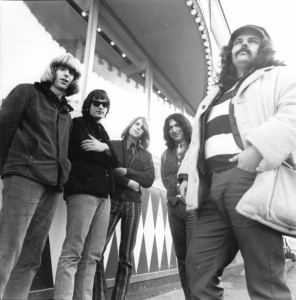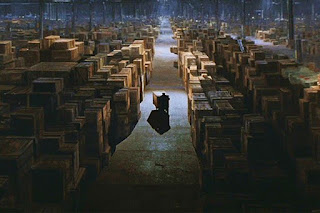Unit 2 Post
Daniel Cohen and Roy Rosenzweig's Digital History: A Guide To Gathering, Preserving, and Presenting The Past On The Web is a free, digital textbook on the basics of digital history.
The Introduction chapter lays out the scope and content of the textbook, and offers some insight and reasoning into the opportunities and challenges of digital history.
Items of interest:
1. Critics on both sides on the potentials of "the internet" and digital media overstated the good and the bad.
2. Digital media forces instructors and students to build PowerPoint presentations instead of paper, chalkboard, overhead, or other physical forms. You still have to put in the work.
3. Seven opportunities: capacity, accessibility, flexibility, diversity, manipulability, interactivity, and hpertextuality. I think accessibility and capacity are the two most important. Large amounts of data and files are now shared to the public and remote researchers who do not need to invest in travel, lodging, etc... to view the material.
4. Five hazards: quality, durability, readability, passivity, and inaccessibility. Quality jumps to mind first, as anyone can load anything to the internet, but physical forgeries are still a problem. Durability will be a challenge as technology improves, but old databases and drives need upgrades and transfers.
5. Content vs tools. Someone has to take the time to research, scan/create, load, store, and display digital media. Others can create tools for data-mining and searching. What good are tools if there is no data though?
6. Preserving everything could overwhelm researchers and historians. What is important if everything is important? How will we find needles in the giant digital haystacks? That said, patterns of life and common products may shed more light than just a handful of preserved letters.
7. Many governments are interested in tools to better search digital images and media, not just text.
8. Does digital media democratize history? What about those without internet access? I think digital history and media are a blessing to those lucky enough to have internet access and resources, but historians will need to continue producing physical media to reach a wider audience.
For my research, I am considering an online lecture or a content site related to a famous historical battle known for dramatic failure. I read a quote that you can learn more from looking at a failure, so I am looking at battles such as Gallipoli (WWI).
From watching Prof. Evans' Intro video on the local digital scene, we are fortunate to be in an area that has embraced digital history and media. I am interested in looking at the tools, and a few of the projects look interesting (ie: letters from the early War Department). That said, though we are close geographically, we need not be thanks to the internet.
The Introduction chapter lays out the scope and content of the textbook, and offers some insight and reasoning into the opportunities and challenges of digital history.
Items of interest:
1. Critics on both sides on the potentials of "the internet" and digital media overstated the good and the bad.
2. Digital media forces instructors and students to build PowerPoint presentations instead of paper, chalkboard, overhead, or other physical forms. You still have to put in the work.
3. Seven opportunities: capacity, accessibility, flexibility, diversity, manipulability, interactivity, and hpertextuality. I think accessibility and capacity are the two most important. Large amounts of data and files are now shared to the public and remote researchers who do not need to invest in travel, lodging, etc... to view the material.
4. Five hazards: quality, durability, readability, passivity, and inaccessibility. Quality jumps to mind first, as anyone can load anything to the internet, but physical forgeries are still a problem. Durability will be a challenge as technology improves, but old databases and drives need upgrades and transfers.
5. Content vs tools. Someone has to take the time to research, scan/create, load, store, and display digital media. Others can create tools for data-mining and searching. What good are tools if there is no data though?
6. Preserving everything could overwhelm researchers and historians. What is important if everything is important? How will we find needles in the giant digital haystacks? That said, patterns of life and common products may shed more light than just a handful of preserved letters.
7. Many governments are interested in tools to better search digital images and media, not just text.
8. Does digital media democratize history? What about those without internet access? I think digital history and media are a blessing to those lucky enough to have internet access and resources, but historians will need to continue producing physical media to reach a wider audience.
For my research, I am considering an online lecture or a content site related to a famous historical battle known for dramatic failure. I read a quote that you can learn more from looking at a failure, so I am looking at battles such as Gallipoli (WWI).
From watching Prof. Evans' Intro video on the local digital scene, we are fortunate to be in an area that has embraced digital history and media. I am interested in looking at the tools, and a few of the projects look interesting (ie: letters from the early War Department). That said, though we are close geographically, we need not be thanks to the internet.


Comments
Post a Comment